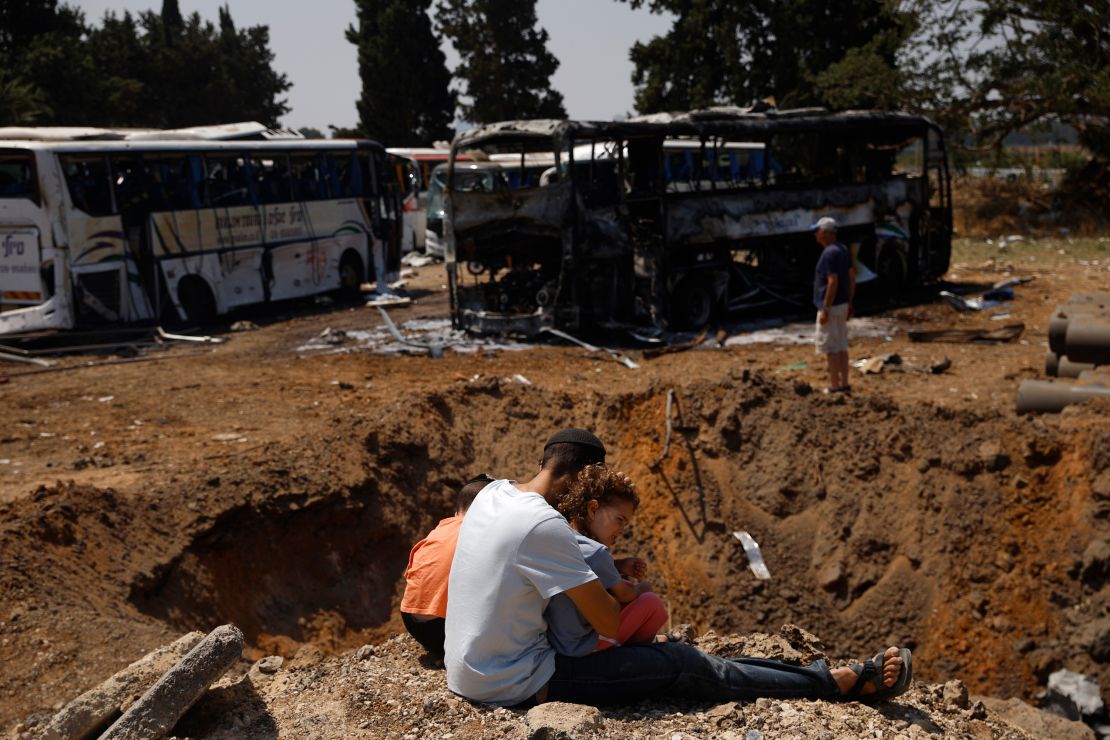CNN
—
There’s long been an awkward tension at the heart of the Kremlin’s complex relationship with the Middle East.
On the one hand, Russian alliances and economic influence there have traditionally been strong.
On the other, as one of the world’s biggest oil and gas producers, Russia tends to profit when things in the energy-rich region go awry and the markets get spooked.
That’s exactly what is playing out right now, with the Kremlin watching its Iranian ally being drastically weakened by Israeli airstrikes, while reaping the benefits.
On the face of it, Russia has so much to lose.
Iran has been a particularly useful “strategic partner” for the Kremlin, not only sharing a disdain for Western values and influence, but also supplying the Russian military with vast squadrons of Shahed aerial drones, enabling the relentless bombardment of Ukraine.
Much of that drone production has, admittedly, long since moved to Russia. But with Ukraine’s own drones now striking Russian production facilities deep behind the frontlines, that once reliable Iranian supply may eventually be missed.
There’s also a faint but painful sense of humiliation for the Kremlin to have to stand by and watch yet another key Middle Eastern ally under ferocious bombardment, unable or unwilling to step in.
Moscow has issued strongly-worded statements, of course, condemning as “illegal” Israel’s attacks on Iran’s nuclear facilities, adding that the strikes were creating “unacceptable threats to international security.”
It also accused Western countries of manipulating the situation to “settle political scores.”
But Russia’s supposed alliance with Iran never extended to defending the Islamic Republic and there has been no Kremlin offer of any military support.
It’s certainly true that a collapse of the Iranian regime, which is now an apparent Israeli objective, would add Iran to the growing Kremlin list of lost Middle Eastern alliances and client states, including Iraq, Libya and, most recently, Syria.
But here’s that awkward tension again: things are not quite as bad for Moscow as they may seem. In fact, this latest Middle Eastern conflict is playing very nicely into the Kremlin’s hands.
As well as the welcome financial windfall, courtesy of the surging price of crude oil, the Iran-Israel conflict is also opening up the taps, as it were, to diplomatic opportunities for a Kremlin that has faced years of international isolation over its war in Ukraine.
Russia has never stopped seeing itself as a major player in international diplomacy, with a rightful place at the top table alongside the US and China.

Now, the Kremlin has an issue on which it can jointly and productively cooperate with the United States, and possibly emerge as an indispensable US partner when it comes to eventually patching the region back together again.
As the only major political leader with a direct line to the Iranians, the Israelis and the United States, the Russian president, Vladimir Putin, is already carefully leveraging his pivotal position, signaling his willingness to act as a mediator, casting Russia as an important power broker in the Middle East.
In a recent call to the White House, Putin reminded President Donald Trump how Russia has been a long-time US ally when it comes to the Iranian nuclear issue – a heavy hint that he is open to being one again.
The White House, it appears, could be open to the idea: After the call, President Trump expressed a willingness to consider the Russian leader as a potential mediator in the conflict.
Since the start of President Trump’s second term, Washington and Moscow have been desperate to find ways to broaden their relationship beyond the narrow focus on the Ukraine war. The fate of Iran and its nuclear ambitions have unexpectedly reemerged – along with the Arctic, economic cooperation and space exploration – as yet another area of potential common interest.
For the Kremlin – and maybe for President Trump too – that’s a major boon.
Not so much for beleaguered Ukraine.
With an escalating Mideast crisis, and the US seemingly teetering on the brink of increasing its direct involvement, global attention has been suddenly diverted from the ongoing war in Ukraine – where intensifying Russian drone and missile strikes are taking an appalling toll – to the devastation being wrought in Israel and Iran.
And, for a while at least, the focus appears to have shifted firmly onto the Kremlin’s role as a potential peacemaker in the Middle East, and away from its part in the war it is continuing to wage closer to home.



